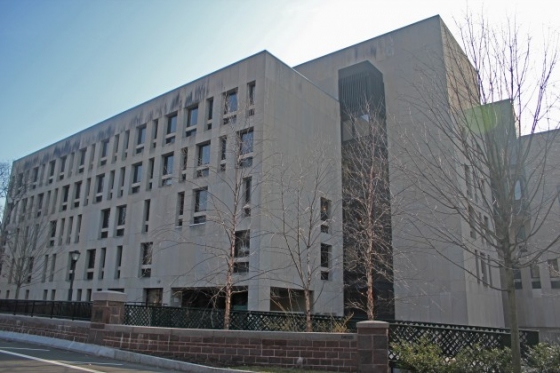
By promoting interdisciplinary ventures among Yale faculty, and (eventually) by cultivating contacts with industry, YINS actively promotes excellence in theoretical and applied science. Furthermore, through the development of a data library relevant to network science methods, YINS will promote the application of network science to real problems.
The Institute has three primary goals:
Research: YINS facilitates interdisciplinary research on the scientific frontier. YINS organizes and builds upon existing expertise at Yale, and it encourages collaboration among the social sciences, engineering, and natural sciences. YINS provides a stimulating scientific environment for faculty and develops technical staff (in data management, grant preparation, etc.) to support their activities.
Education: Faculty associated with YINS develop interdisciplinary courses at both the undergraduate and graduate level with broad appeal to the Yale community. We are developing specialized undergraduate offerings in existing degree programs and currently house both graduate students and postdoctoral fellows. YINS enriches the learning environment at Yale for undergraduates and graduate students.
Outreach: YINS promotes the development and application of network science by organizing seminar series, workshops, and conferences, and maintaining a working paper series. Its members advise others in the Yale community who need to understand networks and network effects. YINS also liaises with industry to develop relationships that provide access to data and cross-fertilizing intellectual exchanges.
YINS Activities and the Yale Community
In addition to advancing science and teaching, and inventing new and useful technologies, and creating and transmitting new and useful ideas, YINS will specifically:
1. Organize and host a weekly seminar series along with meetings of working groups. In addition to providing a platform for faculty from throughout Yale who are interested in networks, YINS will also invite outside speakers, many of whom we anticipate will be leading scientists and innovators in the field.
2. Invite visitors and post-docs. Using intramural and extramural support, we plan to facilitate the hosting of post-docs with terms between one semester and two years. We would also plan to occasionally have long-term (sabbatical) visits from senior researchers, and the availability of space for this purpose.
3. Host conferences. We will organize periodic small conferences. We have a lot of experience with hosting conferences on network research methods, and we also have had conversations with private firms (like Facebook and Acxiom) about supporting conferences and research activities regarding big data at Yale.
4. Organize and support groups applying for grants. YINS will coordinate interdisciplinary research grants and will become a resource center for those looking for funding opportunities to support their work.
5. Invent and apply innovations to real world problems. YINS will develop a process whereby affiliated faculty might identify valuable IP suitable for patent or other sorts of protections. There are also some very logical topics that it could tackle, ranging from data privacy to network robustness to public health interventions.
6. Maintain relationships with intramural and extramural entities. YINS will seek to form collaborative relationships with external entities, such as social media firms, and other institutes at Yale, such as the Jackson Institute, ISPS, Yale Climate and Energy Institute, Kavli Institute for Neuroscience, and others.

